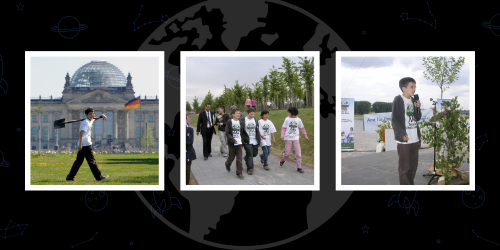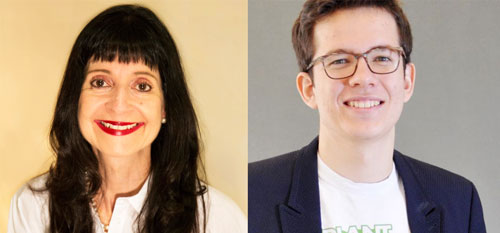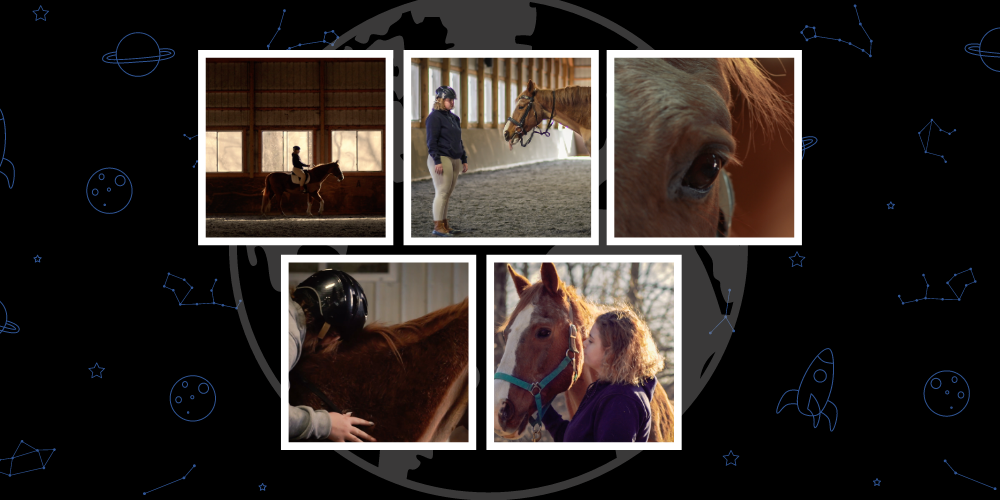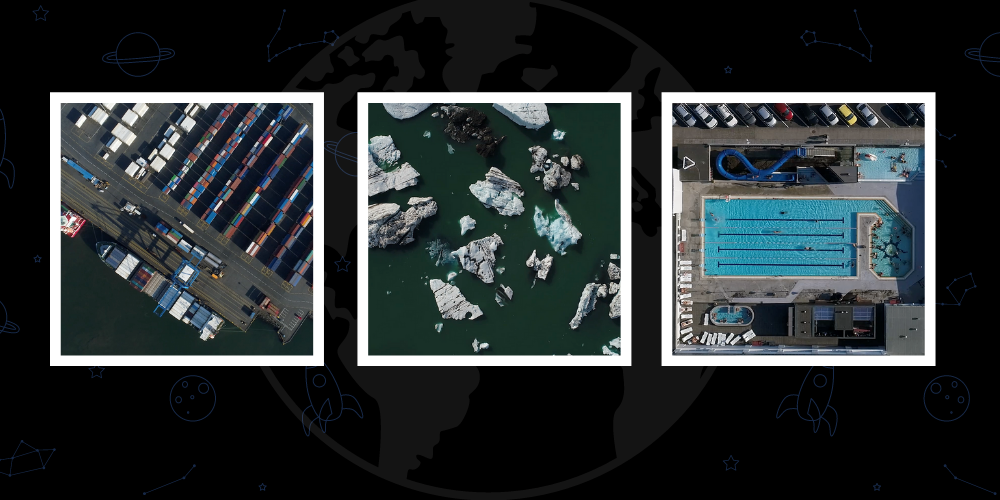This month audiences can screen Plant for the Planet, curated for the Planet Classroom Network by Young Voices for the Planet. It is the story of how Germany’s Felix Finkbeiner, at the age of 10, founded the organization Plant for the Planet. The organization aimed to educate both young and old about climate change and its global impact. The film Plant for the Planet highlights a still very young Felix Finkbeiner as he narrates his goals and mission in the fight against climate change.
Plant for the Planet focused on trees. Trees are one of the most powerful tools that buy us time in the fight against the climate crisis. The world currently has 3 trillion trees. Planting a trillion more was Finkbeiner’s goal to tackle rising temperatures. In the past 15 years, over 91,666 young people have already been trained about the climate crisis at Plant for the Planet’s 1,608 Academies in 75 countries. We invited Felix to give us his update on the good and the bad of the climate crisis since the early beginnings of his movement.
The Global Search for Education is pleased to welcome Felix Finkbeiner.
Felix, Plant for the Planet the film was made a while ago. As you look back and reflect on climate activism when you were getting started and climate activism now, how would you describe the progress that has been made globally?
A lot has happened in those past 15 years since Plant for the Planet first started getting involved in fighting the climate crisis. Not of course because of us, but because of this movement in general. I think the most important change is that the climate crisis has widely been accepted as the dominant challenge of our time.
The thing that our generation has to rally against and we all have to tackle together; it’s now the undisputed major challenge. The other big change is the technological progress we’ve made in key technologies that are essential to preventing the climate crisis. Examples like solar energy, wind energy, battery storage: all these technologies have become radically cheaper in the last 20 years and therefore it is now much, much cheaper than we ever have hoped to actually prevent catastrophic climate change. So even though we’ve done too little in the past few decades, there really is hope. Because it’s now much, much easier to prevent climate change than we could have dreamed 20 years ago.
Can you speak specifically about your work at Plant for the Planet. What solutions and strategies to change minds and change society about reducing carbon footprints in their communities are you most proud of?
One of the key things we’ve been doing over the years to mobilize people to change minds is our children and youth program around the world. Since 2008, we’ve been organizing plans for the planet academies. These are one day workshops where we bring together lots of kids between the ages of 10 and 14 from local schools. And during that day, the participants learn what the climate crisis is and why it’s so important for us to prevent it. What we can do about it, reducing emissions, and of course, also restoring ecosystems and reforesting trees. And very importantly, it’s not just about learning, but it’s about empowerment. It’s about figuring out what we can all do to address this crisis. So that by the end of that day, all of the participating kids leave with action plans they’ve created themselves that they’ve now announced in front of their parents and other participants – what they’re gonna do in their schools to help fight the climate crisis. We’ve had over 90,000 kids participate in these academies all across the world and we want to reach many, many more over the next few years. And of course, what is really really important to us that everyone understands is that the most important thing we have to do to fight the climate crisis is of course drastically reducing our carbon emissions by at least 50% by 2030. And we have to reach 0 emissions well before 2050.
But that alone will no longer be enough to prevent the catastrophic climate crisis. We’ve simply waited too long and done too little in recent years, so reduction alone is insufficient.
On top of reduction, we also have to capture as much as possible of those emissions that are already in the atmosphere and this is why ecosystem restoration is so important. We used to have about 6 trillion trees on Earth. Of those six trillion trees, only about 3 trillion remain today. Now, in an ideal world, we would bring back all of these last trees and once again have just as many trees as we had 10,000 years ago. But of course, there are now so many people on Earth, we need a lot of land for agriculture, settlements and so on. So we cannot bring back all of these three trillion lost trees. But according to some excellent research by our colleagues at TH Zurich in Switzerland, we could restore about a third of these lost forests. So we can go from 3 trillion to 4 trillion, and bringing back these trees is really essential to making sure that global warming does not exceed the 1.5 degree limit.
What more needs to be done by you and by others? Where do you hope to see climate activism 3 to 5 years from now?
It’s quite hard for me to predict what climate activism will be like in three to five years, but one thing I hope we will have achieved by then is having moved away a little from the sense of doom, the incredible dread that people, especially young people, face at the prospect of the climate crisis, and instead have a climate activism that is more rooted in hope that we can prevent this catastrophe. A huge part of our generation has settled into a sort of doomsday acceptance that this is a catastrophe that we are unable to prevent and the future can only be worse. And this is of course not a very effective motivator both for this climate activism community itself or for the broader public to rally behind this cause.
Rather, we should be emphasizing the progress we have made in the technological space in creating technological solutions to the climate crisis. And showed that this crisis is indeed still preventable if we have fast immediate action. Then I think we are much more likely to actually get the support we need to prevent the worst consequences of the climate crisis.
Your film is being watched by a lot of young people in classrooms and on the internet. What is the message you have for younger generations who see what you did and continue to do and want to get involved either in your organization or in their own communities?
First of all, I think it’s actually surprisingly easy, much easier than most people would expect, to get started in doing something to tackle the climate crisis; much easier than it was a few years ago. Simply because the awareness of how serious this crisis is, and of how important it is now, is so widespread, that there are a lot of people willing to engage and to help and to participate. So it’s much, much easier to get a movement started to get people to help you, and that’s wonderful. So you know, I really want to motivate everyone to try and give it their best. On top of that, it’s incredibly important that the things we push for and call for and advocate for are the most effective solutions at addressing the climate crisis and most likely to yield results. So it’s incredibly important that we stick as close as possible to the science and to really understand where we can have the greatest levers.
Now you’ll find that a lot of researchers and academics at universities investigating solutions to climate change in general really want their work to have an impact. They want to be heard in the activism community and in politics. However, they’re writing papers that are read by 100 or so of their colleagues. So they don’t feel that their work is being heard out there.
When activists approach them, they’re usually super excited that people are interested in their work and interested in learning from them. Just reach out to some academics at local universities and they’ll be super excited to work with you and support you, and I’m sure it’s going to be very helpful for you.
Thank you Felix.
C.M. Rubin and Felix Finkbeiner
Don’t Miss Plant for the Planet, curated by Young Voices for the Planet, now screening on the Planet Classroom Network.







Recent Comments